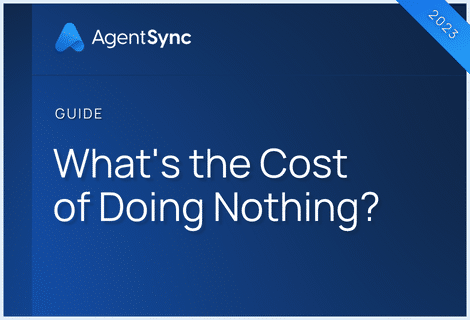

As the federal government eases carriers, agencies, and producers into its new best interest rules, Mississippi is the most recent state to make its own adjustments ensuring annuity sales conform to the national standards.
Mississippi is taking aim at confusing annuity sales tactics with a change to their continued education and general annuity standards. Of course, we’ve covered Mississippi’s general CE requirements elsewhere on this blog, but this particular update warrants a closer look.
Insurance regulation of course doesn’t happen in a vacuum, and this change is no exception. It’s part of a broader movement happening across the states and even at a national level, and it’s worth some scrutiny as we forecast what form this annuity regulatory trend will take.
As a disclosure, we’re not lawyers, just nerds, so, when it comes to your own adherence to relevant rules and regs, please be sure to do your own due diligence. That said, let’s get started.
What is an annuity?
- Annuities are income payments a life insurer guarantees to pay as a lump sum or series of payments (a broad, generic oversimplification, to be sure, but c’est la vie). This income component makes them most attractive to people preparing for retirement.
- Annuities are complicated. For instance, while most annuities are purely insurance products, some have an investment component that require the sales representative to hold both insurance and securities licenses.
- Annuities have high upfront commissions compared to many other insurance contracts.
The annuity best interest rule backstory

These factors have unfortunately led to the trend of insurance producers selling annuity contracts to soon-to-be-retirees with a promise of securities-like growth with guaranteed income or returns. Documents at the National Association of Insurance Commissioners (NAIC), notes from the federal Department of Labor, and personal conversations with regulators reaffirm that, while annuities can absolutely be a solid piece of a retirement income plan, the industry struggles with insurance producers who misrepresent these complex products to the public.
Downstream, that means retirees may have put a significant amount of their retirement savings into an annuity, sometimes unintentionally or without knowing. And that fell into a regulatory zone that was somewhat gray. Insurance product sales such as annuity contracts fall under the suitability standard, which essentially means producers just had to show they believed a client had the money to afford a product to sell it to them.
All the new regulations instead move most annuity sales into the realm of a “best interest” standard. Now, aside from a very limited range of scenarios, the producer has to offer annuities that fit a client’s specific goals and circumstances, not the producer’s interests and commission preferences.
What is the new Mississippi annuity regulation?
The Mississippi regulation is based on the NAIC Suitability in Annuity Transactions Model Regulation, which joins the Securities and Exchange Commission and the Department of Labor in establishing a best interest regulation for producers selling most annuities.
The law makes clear the best interest standard in this regard is not to be confused with a “fiduciary duty,” which would also require ongoing service and a deeper level of responsibility that Mississippi and other states that adopt the NAIC model don’t intend for insurance producers to shoulder.
However, the new standard includes heightened obligations for carriers’ and producers’ record-keeping to verify that a producer took reasonable care to establish the annuity was in a client’s best interest.
Producer’s obligations under the Mississippi annuity best interest regulation
Let’s start with the producer’s role. Under the new Mississippi annuity best interest regulation, insurance producers selling annuities have the following obligations:
- A care obligation. Essentially, this is the obligation to care whether the product is good for the client. A producer has to request records of the client’s financial standings and fit an annuity into the greater context of their financial situation. If a client refuses to provide this information and context, that has to be documented, too.
- A disclosure obligation. Producers have to disclose what they are licensed to sell, their role, the insurer relationships they have, and the nature of their compensation.
- Conflict of interest obligations. This obligates a producer to disclose other conflicts of interest, such as ownership interests.
- Documentation obligations. If we were still in a paper-based world, this would mean killing a whole lot of trees. Basically, this is just an obligation for producers to record what they based their decisions off of and why they recommended a particular product.
- Application of the best interest obligation. Everyone who has a decision-making role in the annuity sale process should be following this general sentiment.
Insurer obligations under the Mississippi annuity best interest regulation
A lot of annuity regulations also change the role of insurance carriers that are selling annuities through downstream producers. Among those obligations:
- Verifying suitability. An insurance carrier is bound to not issue an annuity unless they have reasonable information to believe it fits the client’s circumstances and fills their need.
- Supervisory system. Insurers must establish and maintain a system for ensuring producers are fully trained, complying with procedures, and documenting their sales information and justifications
- Taking corrective action. While the law clarifies this doesn’t prevent insurers from contracting with anyone, it does obligate insurers to do something about it in the case that they discover a producer or agency is acting out of compliance with state law.
- Insurers aren’t responsible for products that aren’t theirs.
Changes to Mississippi’s annuity best interest CE requirement
Insurance producers who hope to sell annuities (presuming they already have the necessary life insurance line of authority) have to complete a one-time, four-hour course specific to annuities before they can sell them.
For agents who are already in the field, they have the next five months (six months from the Jan. 1, 2022, start date) to get this relevant four-hour training. The CE can be product-specific and given through the insurer, but has to cover:
“(a) The types of annuities and various classifications of annuities;
(b) Identification of the parties to an annuity;
(c) How product specific annuity contract provisions features affect consumers;
(d) The application of income taxation of qualified and non-qualified annuities;
(e) The primary uses of annuities; and
(f) Appropriate standard of conduct, sales practices, replacement and disclosure requirements”
As another point of interest, the Mississippi law requires even nonresident producers to have this annuity-specific CE, or their resident-state equivalents.
The future of annuity regulation
Mississippi’s law took effect on Jan. 1, 2022, but this is only one of many states to adopt this regulation, with more to assuredly follow.
Particularly as the midpoint of 2022 will see the full implementation and enforcement of the DOL best interest rules as well, states that hope to continue working across borders and maintain reciprocity will likely follow suit.
To find out how AgentSync can help you and your producers keep up with these changing regulations and documentation requirements, check out a demo today.

